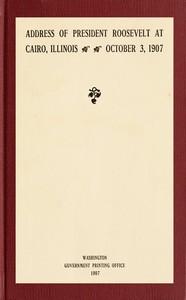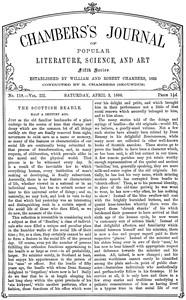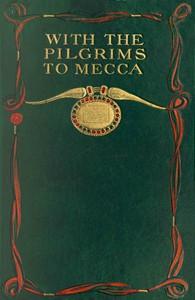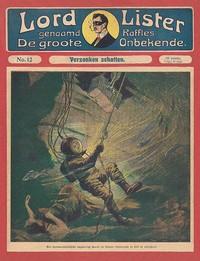|
|
Read this ebook for free! No credit card needed, absolutely nothing to pay.Words: 7064 in 2 pages
This is an ebook sharing website. You can read the uploaded ebooks for free here. No credit cards needed, nothing to pay. If you want to own a digital copy of the ebook, or want to read offline with your favorite ebook-reader, then you can choose to buy and download the ebook.

: Address of President Roosevelt at Cairo Illinois October 3 1907 by Roosevelt Theodore - Speeches addresses etc.; United States Politics and government 1901-1909@FreeBooksThu 08 Jun, 2023 ADDRESS OF PRESIDENT ROOSEVELT AT CAIRO, ILLINOIS OCTOBER 3, 1907
WASHINGTON GOVERNMENT PRINTING OFFICE 1907 MEN OF ILLINOIS, AND YOU, MEN OF KENTUCKY AND MISSOURI: I am glad to have the chance to speak to you to-day. This is the heart of what may be called the Old West, which we now call the Middle West, using the term to denote that great group of rich and powerful States which literally forms the heart of the country. It is a region whose people are distinctively American in all their thoughts, in all their ways of looking at life; and in its past and its present alike it is typical of our country. The oldest men present can still remember the pioneer days, the days of the white-tilted ox wagon, of the emigrant, and of the log cabin in which that emigrant first lived when he settled to his task as a pioneer farmer. They were rough days, days of hard work, and the people who did that work seemed themselves uncouth and forbidding to visitors who could not look below the surface. It is curious and amusing to think that even as genuine a lover of his kind, a man normally so free from national prejudices as Charles Dickens, should have selected the region where we are now standing as the seat of his forlorn "Eden" in Martin Chuzzlewit. The country he so bitterly assailed is now one of the most fertile and productive portions of one of the most fertile and productive agricultural territories in all the world, and the dwellers in this territory represent a higher average of comfort, intelligence, and sturdy capacity for self-government than the people in any tract of like extent in any other continent. The land teems with beauty and fertility, and but a score of years after Dickens wrote it was shown to be a nursery and breeding ground of heroes, of soldiers and statesmen of the highest rank, while the rugged worth of the rank and file of the citizenship rendered possible the deeds of the mighty men who led in council and in battle. This was the region that brought forth mighty Abraham Lincoln, the incarnation of all that is best in democratic life; and from the loins of the same people, living only a little farther south, sprang another of our greatest Presidents, Andrew Jackson, "Old Hickory"--a man who made mistakes, like most strong men, but a man of iron will and incorruptible integrity, fearless, upright, devoted to the welfare of his countrymen, bone of our bone and flesh of our flesh, a typical American if ever there was one. I commend a careful reading of Martin Chuzzlewit to the pessimists of to-day, to the men who, instead of fighting hard to do away with abuses while at the same time losing no jot of their buoyant hopefulness for the country, insist that all our people, socially and industrially, in their private lives no less than as politicians, newspaper men, and business men, are at a lower ebb than ever before. If ever any one of you feels a little downcast over the peculiarly gloomy view of the present taken by some well-meaning pessimist of to-day, you will find it a real comfort to read Martin Chuzzlewit, to see what a well-meaning pessimist of the past thought of our people sixty-five years ago; and then think of the extraordinary achievement, the extraordinary gain, morally no less than materially, of those sixty-five years. Dickens can be read by us now with profit; Elijah Pogram, Hannibal Chollop, Jefferson Brick and Scadder have their representatives to-day, plenty of them; and the wise thing for us to do is to recognize that these are still types of evil in politics, journalism, business, and private life, and to war against them with all our hearts. But it is rank folly to regard these as the only, or the chief, types in our national life. It was not of much consequence whether Dickens made such an error or not, but it would be of great consequence if we ourselves did; for a foolish pessimism is an even greater foe of healthy national growth than a foolish optimism. It was not that Dickens invented characters or scenes that had no basis in fact; on the contrary, what he said was true, as far as it went; the trouble was that out of many such half truths he made a picture which as a whole was absurd; for often a half truth is the most dangerous falsehood. It would be simply silly to be angry over Martin Chuzzlewit; on the contrary, read it, be amused by it, profit by it; and don't be misled by it. Keep a lively watch against the present-day Pograms and Bricks; but above all, distrust the man who would persuade you to feel downhearted about the country because of these same Pograms and Bricks, past or present. It would be foolish to ignore their existence, or the existence of anything else that is bad in our national life; but it would be even more foolish to ignore the vaster forces that tell for righteousness. Friends, there is every reason why we should fight whatever is evil in the present. But there is also every reason why we should feel a sturdy and confident hope for the future. There are many wrongs to right; there are many and powerful wrong doers against whom to war; and it would be base to shrink from the contest, or to fail to wage it with a high, a resolute will. But I am sure that we shall win in the contest, because I know that the heart of our people is sound. Our average men and women are good men and women--and this is true in all sections of our country and among all classes of our countrymen. There is no other nation on earth with such vast natural resources, or with such a high standard of living and of industrial efficiency among its workers. We have as a nation an era of unexampled prosperity ahead of us; we shall enjoy it, and our children will enjoy it after us. The trend of well-being in this country is upward, not downward; and this is the trend in the things of the soul as well as in the things of the body. Government in its application is often a complicated and delicate work, but the principles of government are, after all, fairly simple. In a broad general way we should apply in the affairs of the national administration, which deals with the interests of all our eighty-odd millions of people, just the same rules that are necessary in getting on with our neighbors in our several neighborhoods; and the nation as a whole should show substantially the same qualities that we would expect an honorable man to show in dealing with his fellows. To illustrate this, consider for a moment two phases of governmental action. First as to international affairs. Among your own neighbors, among your friends, what is the attitude you like to see a man take toward his fellows, the attitude you wish each of your sons to take when he goes out into the world? Is it not a combination of readiness and ability to hold his own if anyone tries to wrong him, while at the same time showing careful regard not only for the rights but for the feelings of others? Of course it is! Of course the type of man whom we respect, whom we are proud of if he is a kinsman, whom we are glad to have as a friend and neighbor, is the man who is no milksop, who is not afraid, who will not tolerate nor hesitate to resent insult or injury, but who himself never inflicts insult or injury, is kindly, good-natured, thoughtful of others' rights--in short, a good man to do business with or have live in the next house or have as a friend. On the other hand, the man who lacks any of those qualities is sure to be objectionable. If a man is afraid to hold his own, if he will submit tamely to wrongdoing, he is contemptible. If he is a bully, an oppressor, a man who wrongs or insults others, he is even worse and should be hunted out of the community. But, on the whole, the most contemptible position that can possibly be assumed by any man is that of blustering, of bragging, of insulting or wronging other people, while yet expecting to go through life unchallenged, and being always willing to back down and accept humiliation if readiness to make good is demanded. The first need is to exercise this Federal control in thoroughgoing and efficient fashion over the railroads, which, because of their peculiar position, offer the most immediate and urgent problem. The American people abhor a vacuum, and is determined that this control shall be exercised somewhere; it is most unwise for the railroads not to recognize this and to submit to it as the first requisite of the situation. When this control is exercised in some such fashion as it is now exercised over the national banks, there will be no falling off in business prosperity. On the contrary, the chances for the average man to do better will be increased. Undoubtedly there will be much less opportunity than at present for a very few individuals not of the most scrupulous type to amass great fortunes by speculating in and manipulating securities which are issued without any kind of control or supervision. But there will be plenty of room left for ample legitimate reward for business genius, while the chance for the man who is not a business genius, but who is a good, thrifty, hard-working citizen, will be better. I do not believe that our efforts will have anything but a beneficial effect upon the permanent prosperity of the country; and, as a matter of fact, even as regards any temporary effect, I think that any trouble is due fundamentally not to the fact that the national authorities have discovered and corrected certain abuses, but to the fact that those abuses were there to be discovered. I think that the excellent people who have complained of our policy as hurting business have shown much the same spirit as the child who regards the dentist and not the ulcerated tooth as the real source of his woe. I am as certain as I can be of anything that the course we are pursuing will ultimately help business; for the corrupt man of business is as great a foe to this country as the corrupt politician. Both stand on the same evil eminence of infamy. Against both it is necessary to war; and if, unfortunately, in either type of warfare, a few innocent people are hurt, the responsibility lies not with us, but with those who have misled them to their hurt. These sentences should be carefully pondered by those men, often very good men, who forget that constructive change offers the best method of avoiding destructive change; that reform is the antidote to revolution; and that social reform is not the precursor but the preventive of socialism.
Transcriber's Notes: Free books android app tbrJar TBR JAR Read Free books online gutenberg More posts by @FreeBooks
: Chambers's Journal of Popular Literature Science and Art fifth series no. 118 vol. III April 3 1886 by Various - Periodicals@FreeBooksThu 08 Jun, 2023

: With the pilgrims to Mecca: The great pilgrimage of A.H. 1319; A.D. 1902 by Khan Hadji Gazanfar Ali Sparroy Wilfrid V Mb Ry Rmin Author Of Introduction Etc - Pilgrims and pilgrimages; Mecca (Saudi Arabia)@FreeBooksThu 08 Jun, 2023
|
Terms of Use Stock Market News! © gutenberg.org.in2025 All Rights reserved.






